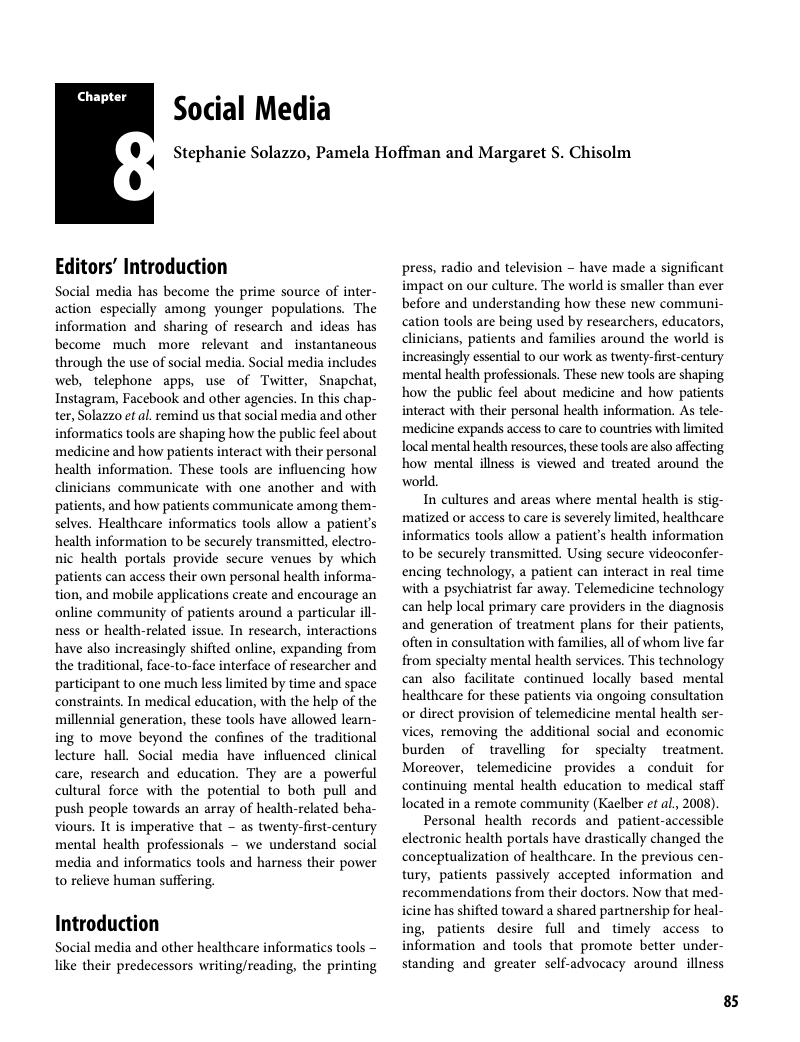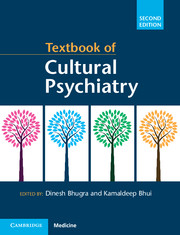Book contents
- Textbook of Cultural Psychiatry
- Textbook of Cultural Psychiatry
- Copyright page
- Dedication
- Contents
- Contributors
- Foreword
- Preface to the Second Edition
- Section 1 Theoretical Background
- Chapter 1 Cultural Psychiatry in Historical Perspective
- Chapter 2 Anthropology and Psychiatry
- Chapter 3 Suicide, Violence and Culture
- Chapter 4 Psychology and Cultural Psychiatry
- Chapter 5 Spirituality and Cultural Psychiatry
- Chapter 6 Lifestyle Medicine in Psychiatry
- Chapter 7 Globalization and Mental Health
- Chapter 8 Social Media
- Chapter 9 Telepsychiatry
- Chapter 10 Ethnic Inequalities and Cultural-Capability Framework in Mental Healthcare
- Section 2 Culture and Mental Health
- Section 3 Culture and Mental Disorders
- Section 4 Theoretical Aspects of Management
- Section 5 Management with Special Groups
- Section 6 Cultural Research and Training
- Index
- References
Chapter 8 - Social Media
from Section 1 - Theoretical Background
Published online by Cambridge University Press: 16 March 2018
- Textbook of Cultural Psychiatry
- Textbook of Cultural Psychiatry
- Copyright page
- Dedication
- Contents
- Contributors
- Foreword
- Preface to the Second Edition
- Section 1 Theoretical Background
- Chapter 1 Cultural Psychiatry in Historical Perspective
- Chapter 2 Anthropology and Psychiatry
- Chapter 3 Suicide, Violence and Culture
- Chapter 4 Psychology and Cultural Psychiatry
- Chapter 5 Spirituality and Cultural Psychiatry
- Chapter 6 Lifestyle Medicine in Psychiatry
- Chapter 7 Globalization and Mental Health
- Chapter 8 Social Media
- Chapter 9 Telepsychiatry
- Chapter 10 Ethnic Inequalities and Cultural-Capability Framework in Mental Healthcare
- Section 2 Culture and Mental Health
- Section 3 Culture and Mental Disorders
- Section 4 Theoretical Aspects of Management
- Section 5 Management with Special Groups
- Section 6 Cultural Research and Training
- Index
- References
Summary

- Type
- Chapter
- Information
- Textbook of Cultural Psychiatry , pp. 85 - 92Publisher: Cambridge University PressPrint publication year: 2018

